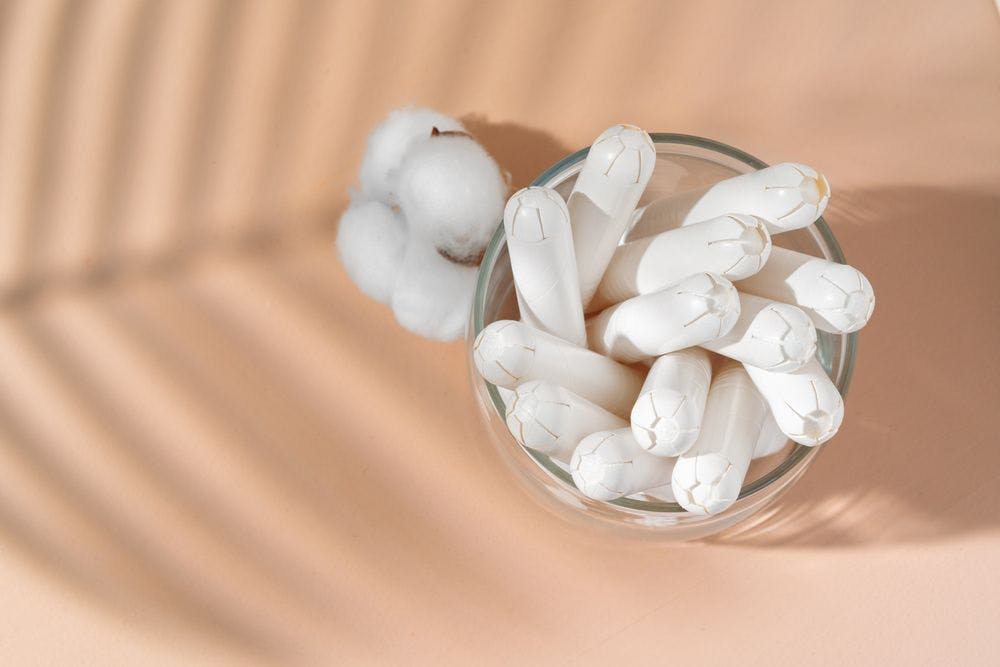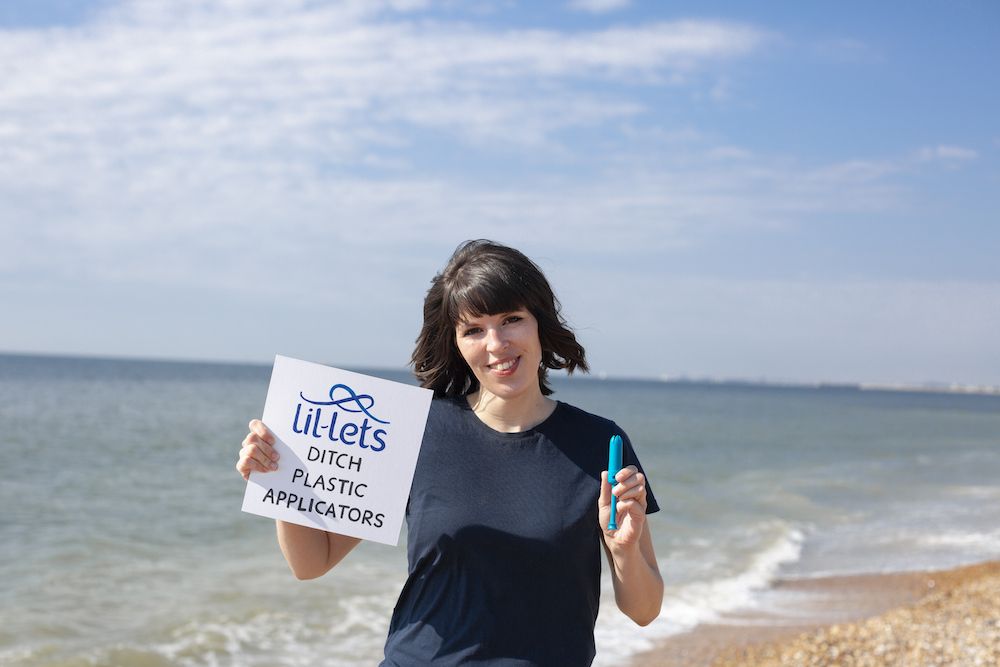
As tampon brand Lil-Lets announce they’re ditching plastic packaging for good, we speak to the activist who inspired the move, and delve into tips for positive change
In the UK, it’s estimated that tampons, pads, and applicators generate approximately 200,000 tonnes of waste every year – to put that into perspective, that’s about seven and a half times as heavy as the Statue of Liberty. And while there is something liberating about making period care as easy and streamlined as possible, the impact on the environment means that single-use plastic cannot be the answer.
It’s something that environmental activist Ella Daish quickly realised when the extent of the problem became clear to her as she walked the streets while working as a postal worker for Royal Mail.
“I noticed the amount of waste being thrown away each week on my route was increasing, and it made me think about how much we throw away nationwide. This made me reflect on my own consumption and I began to make product switches,” Ella tells us.
“I felt positive about the steps I was taking – but then my period started, and I noticed, for the first time, the amount of plastic waste I was generating during just one menstrual cycle. Some online research revealed that conventional tampons and pads – the ones I had been using for many years – could contain up to 90% plastic. I was horrified.”
In her local supermarket, Ella came up against a brick wall, as the choice for menstrual products was between plastic or more plastic.
“This frustrated me because, without a choice, how can we truly make a decision about what we buy? It just didn’t make any sense to me that something we’re using for a few hours is taking centuries to break down, and that if small companies could make eco-friendly period products, so could the big brands.”
Inspired by the likes of Laura Coryton’s tampon tax petition, in 2018 Ella took a stand – starting with targeting big brands.

Ella Daish | Photography: Lauren Shipley
“When I started campaigning, it was hard to get decision-makers to engage with me – and Lil-Lets were no different. After failed attempts to get a meeting, in January 2019 I travelled to Solihull, armed with placards, and did a peaceful demonstration outside their offices in the hope of getting them to speak to me, which was unsuccessful.
“I continued emailing them, and this persistence paid off. In 2020, they invited me to meet them at their HQ, and we’ve been in regular contact since!”
Following their meeting, Lil-Lets began taking steps to create more sustainable products – this week releasing their first reusable tampon applicator, and ditching plastic applicators altogether from November 2021, a move that is predicted to save more than 11 tonnes of plastic waste each year.
“I never thought that this was going to happen because whenever we spoke about it, it wasn’t on the table, so you can imagine how thrilled I am by this move,” Ella says. “As a major manufacturer, their transformation shows that brands can change if they are willing and open to, and we need more companies to follow their lead.”
With a look to the future, we ask Ella: is she hopeful?
“I think, sometimes, it’s hard to stay positive when the individuals who have got the money and power to make decisions that are better for people and the planet aren't doing the right thing, and in a lot of cases are actually moving backwards,” she says. “However, the number of people taking action, engaging, and rising up in the environmental movement is growing and that does make me hopeful.”
Ella Daish’s tips for a more planet-friendly period
- My number one tip when ditching plastic on your period is to switch to a sustainable version of the product you’re already familiar with.
- Did you know that what you flush down the toilet can end up in the sea? A massive 1.5–2 billion period products are flushed in the UK each year. When this happens, they enter the sewerage system and if they are not captured, they end up in our rivers, flow into the sea and wash up on beaches. So make sure to dispose of them in the bin, not down the toilet.
- If you’re ready to try reusables then I’d recommend opting for a menstrual cup if you use tampons, or washable pads and period pants if you use pads. Switching to reusable period products is a win-win. You save money and use fewer resources, which is kinder to the planet.
- If you’re new to reusable period products, I’d recommend trying them out at home first, so that you can get comfortable and confident using them before heading out.
- If you use plastic tampon applicators, opting for a reusable applicator is a fantastic way of cutting down on single-use plastic, you’ll save around 286 a year by switching.
Find out more about Ella’s work to #EndPeriodPlastic at elladaish.com or sign her petition.
The Lil-Lets reusable tampon applicator will be available to purchase from lil-lets.co.uk at an introductory price of £12.99 (RSP £17.99).
Interested in making positive change in your own life? Connect with a life coach using lifecoach-directory.org.uk

